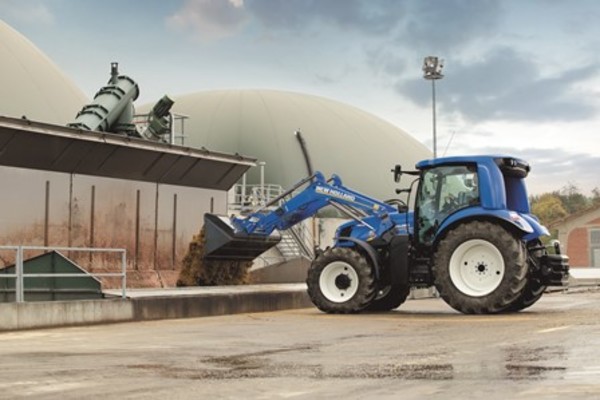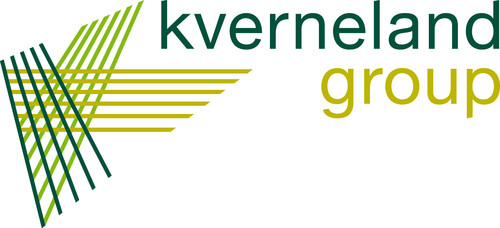
ENABLING, an European project for Green Economy
From next December, FederUnacoma, in partnership with Itabia – Italian Biomass Association – will coordinate an European project aimed at promoting the use of natural and renewable raw materials for a zeroimpact industry. In this field, a significant synergy between several production sectors, the world of research and political bodies, will make a determined push to succeed in innovative markets
Green Economy is usually associated with the idea of a great challenge concerning future, but there is not enough awareness of the fact that it is a solid reality that may enhance further development opportunities. In this regard, the recent “2017 GreenItaly” report published by the Symbola Foundation and Unioncamere, provides some very beneficial information. The report highlights in what form and terms the European economy and particularly the Italian economy is increasingly orienting itself towards a sustainable use of energy and resources by exploiting technological innovation, while maintaining a close relationship between quality and beauty, respect for the environment and social cohesion. From the report’s data it emerges that in Italy, from the beginning of the economic crisis to the present day, almost one out
of three businesses has bet on the green economy through a modernization process of its production styles and a stronger synergy with the world of research. For instance, in the manufacturing industry the 33.8% of businesses considered green strategies as a decisive boost to increase competitiveness, exports, turnover, and qualified workforce. In fact, the green economy is responsible for creating the slightly less than 3 million jobs (13% of the overall national employment rate) with “green-skilled” employees, who contribute to 195.8 billion euro added value. In this context, it is not a case that the so-called green jobs (i.e., energy engineers, organic farmers, mechatronic technicians, green power technology installers, etc.) represent the 60% of the total recruitments for 2017. This dynamic follows the path of the “Industria 4.0” national plan, by which the government aims to reduce energy impact on the environment, facilitate production processes by avoiding waste of resources and recycle materials. To this European and national framework belongs the ENABLING Project – Enhance New Approaches in BioBased Local Innovation Networks for Growth – financed through the 2020 Horizon programme, managed by FederUnacoma and coordinated by Itabia for the technical and scientific issues. The project, starting from December 2017, lasts 36 months and involves 16 partners from 13 countries (Italy, Belgium, Norway, Ireland, Austria, Bulgaria, Great Britain, Holland, Greece, the Czech Republic, Israel, France, and Germany). Within ENABLING a series of activities aimed at facilitating the ecodevelopment of bioeconomy will be promoted by investing in the valorization of raw materials of organic origin (residual or specially selected) to be used in various sectors with enormous development potential, such as green chemistry, textile industry, automotive, nutraceutical industry, and bio-construction. The objective is to promote a low-carbon economy by reducing resource consumption. The project aims to cut the use of chemicals made from oil by using a wide range of residues to produce bioplastics, colorants and organic fibers, and chemical compounds from highly biodegradable natural sources. In this respect, a strong commitment will be directed to the creation of a database of information (on biomass availability, good practices, technological and scientific know-how). This information will be shared on a dedicated network of shareholders. In this way, it will be possible to transfer selected experiences to operators and businesses of the agricultural (the main biomass suppliers) and industrial sector (potential users). Through a cohesive and comprehensive programme of contacts, based on direct meetings and virtual platforms, this database will ensure an appropriate sharing of information on the opportunities offered by the use of biomass in the European market of bio-based products (BBP). To summarize, the activities through which the objective shall be achieved are: identify the state of the art and the development potential of BBP industry compared with residual biomass from agriculture, fill the lack of information on the innovative BBP market through a shared and exhaustive database, strengthen the know-how and the use of best practices concerning BBP supply chains that, using residual biomass from agriculture, have direct outlets in the EU market, share and develop sustainable BBP supply chain models as a support to the European green economy and, finally, improve guidelines useful to promote the EU strategy and an action plan towards a sustainable bioeconomy within 2020. Moreover, from the interpolation and analysis of the actions proposed, the economic effects on the environment and society of the organic industry will be evaluated, as well as growth prospects in the European market. Hopefully, this project will also represent a useful tool for policy makers to define appropriate strategies for supporting investments in the sector of bioeconomy, by taking into account a series of limits such as competition on the use of resources that have several outlets. The new perspectives on the use of biomass in the sector of bioe conomy will allow planning at best the management of residues from agriculture to integrating different production sectors by involving businesspeople, researchers, and local administrators. The project has the ambition to stimulate cooperative innovation that BBP industry can generate in various sectors of the EU agriculture through an improved exchange of demands and knowledge between operators and academic world in a moment in which many farmers are experiencing – through business multifunctionality – innovative and sustainable solutions to increase turnover and improve land management. As reported above, the green economy continues to rise but at the same time the agricultural sector is going through a structural crisis with adverse effects on the management of the agroecosystems and land abandonment. In this framework, the synergy between these forces may have serious consequences. Crop diversification through the introduction of new types of cultivations or a better valorization of traditional plantings and productive waste can bring the construction of new refinery plants to be considered as new opportunities for land development and protection. As highlighted by the Focus Group of the European Partnership for Agricultural Productivity and Sustainability (EIP-AGRI), farmers are often unable to turn their best intentions into practical actions for the difficulty to use information that today are easy to share. To conclude, the final conference of ENABLING will be held in 2020 in Bologna during the EIMA International exhibition to allow a better circulation of the results obtained from this project.








